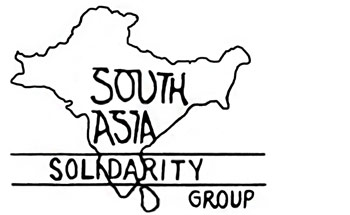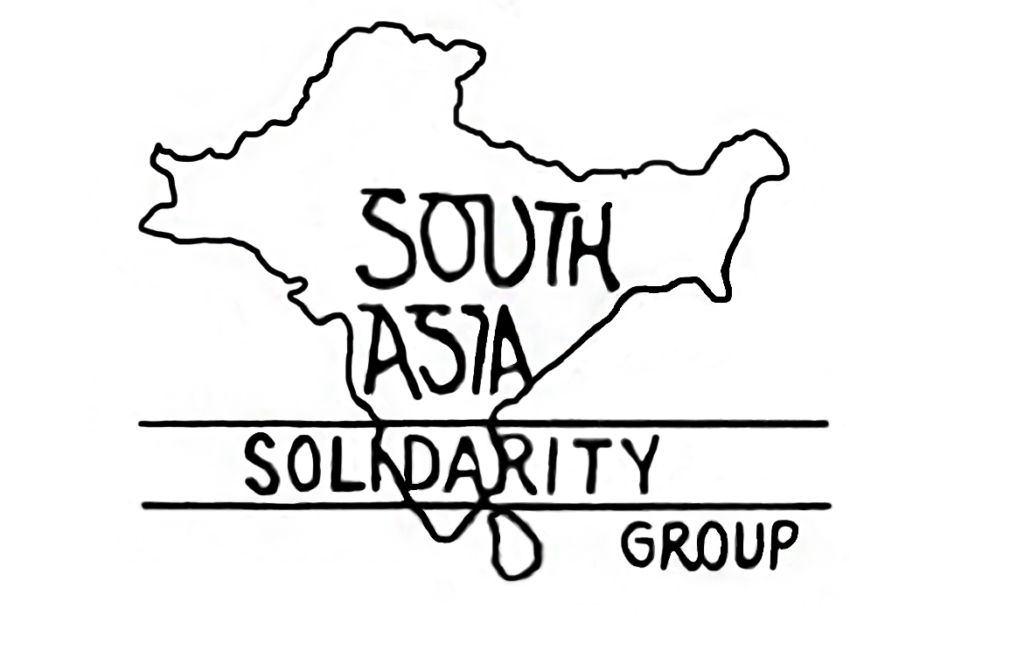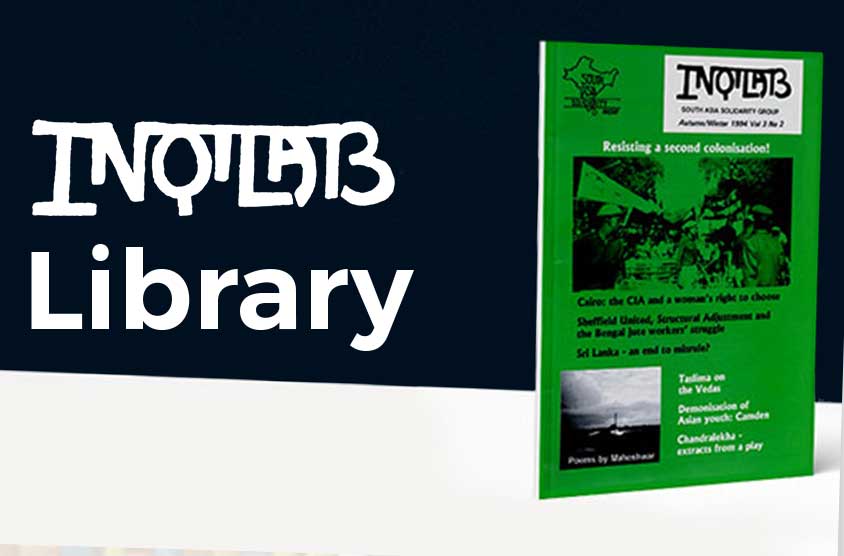- August 16, 2011
- Posted by: admin
- Category: News
Amrit Wilson
While the British media and spokespersons for the state preach ‘morality’, they seem to have forgotten that a man was killed on 4th August. Mark Duggan, a Black man, was shot dead in Tottenham, North London not by rioters but by the police. His family have still not been told why he was murdered. And when on 6th August they and their grieving friends organized a peaceful protest outside the police station, demanding to know the truth, they were treated not with compassion but to further violence – with a 16 year old girl allegedly being assaulted by the police. Meanwhile a false story was circulated in the media that Mark Duggan had fired at the police. Is this perhaps what the state calls ‘morality’?
Not surprising then that the events of the last few days have been so easily reconstructed not only by the state but also by liberal even supposedly left-leaning commentators. So while Boris Johnson screams for stiffer sentences for under age offenders, Kenan Malik, for example, tells us that we are misguided in drawing comparisons with the 1981 riots: “ Those riots were a direct challenge to oppressive policing and to mass unemployment” whereas today’s riots are about “inchoate anger” [descending] “largely into arson and looting with little sense of political motive or cause” . But aren’t riots always, by their very nature, about ‘inchoate anger’? Can they ever be without burning political causes?
We are being asked to believe too that the riots this time –unlike in the eighties – were not about racism. And yet we know that they started with the murder of a Black man, and came against a background of police killings of black people – 333 people , the vast majority of whom are black, have been killed in police custody since 1998 (with not a single officer convicted). And yet these murders rarely make the front pages of the national media, and are often not reported at all. Do these deaths matter? As a Black passerby interviewed in Hackney recounted bitterly “two dogs died in a police car… They started an enquiry there and then, officers got suspended. When [Mark Duggan] got shot, nothing got said, they didn’t even go and see the family. This told everybody in this environment that we’re nobody…”
Today, as in the eighties, the laws on Stop and Search are being used to routinely to harass and criminalise Black and Asian men. And as in the eighties, the rioters were not only black people but in each area represented the ethnic make up of the locality.
Then, as now, political commentators outdid each other to declare that the riots were really about a problematic culture which was imported into Britain. In the eighties, it was about youth ‘caught between two cultures’. Today we are told that they were caused by ‘Black culture’ – so dominant that it has contaminated white people.
Over the last few days, the BBC subjected us to David Starkey pontificating about black culture and glorifying Enoch Powell; and in another programme a white interviewer insulting veteran campaigner Darcus Howe and accusing him of having ‘taken part in riots’ himself. In television discussion programmes that ancient unwritten British rule that racism must not be discussed is strictly observed. In one Channel 4 programme, a question about Mark Duggan’s death was quickly fobbed off by the anchor saying that this was not really the subject of discussion. In another, a BBC programme for young voters, a black panel member raised the question of police inaction over gang murders, saying, “the strongest I have heard David Cameron speak out is when shops are burned down…shops can be rebuilt, you can’t rebuild a dead body.” He too was immediately stopped from saying any more on the topic because this was not ‘the subject being discussed’. Over and over again, we see attempts to raise the underlying causes of the riots suppressed with the accusation that the speaker is ‘trying to justify’ what happened, and the message being promoted by all major politicians – that the riots are primarily about ‘criminality’ and ‘immorality’ is once again reinforced.
While media commentators come out with a plethora of ‘evidence’ to prove the immorality of the younger looters (in fact the looters were by no means all young) David Cameron talks about “attitudes and assumptions that have brought parts of our society to this shocking state” and proceeds to blame it on “children without fathers, schools without discipline and communities without control” where the “twisting and misrepresenting of human rights that has undermined personal responsibility” and the “obsession with health and safety that has eroded people’s willingness to act according to common sense”. Behind this apparently garbled nonsense characteristic of our PM’s utterances is the attempt to use the riots, which have come in the wake of devastating cuts to public services and benefits, to disengage even further from any state responsibility for people’s welfare or even survival – and to justify further attacks on human rights and civil liberties.
Thus police numbers are to be cut massively, but at the same time they have been given even more powers – plastic bullets and water cannon will now be available for use on demonstrators, climate change activists, those defending their communities from fascists, and all others who oppose the state.
Here once again there are echoes of 1981, then too the police were given increased powers and methods used in the north of Ireland were imported into Britain. So if these are similarities, what are the differences? What has changed between July 1981 and August 2011?
Firstly, laws have become even more racist and state violence has intensified. While the US and Britain attack and loot countries whose resources they want, they now have the powers to silence all those who oppose these policies at home. We have today anti-terrorism legislation under which people can be incarcerated in high-security jails or even extradited to America without being charged with any offence or any evidence being produced in court.
Secondly, poverty now stalks vast areas of the country. Recent figures showed that 1.6 million children were growing up in severe poverty in Britain, with this set to increase sharply with job losses and welfare cuts. Everywhere communities have been fragmented, trade unions shackled , collective action stamped on, and individualism and consumerism glorified. Corruption has grown to gigantic proportions at the highest levels of society – from bankers to MPs to police commissioners – venality has become commonplace and goes unpunished. As big corporates hypocritically complain that their ‘brand image’ has been tainted by the looting which can be seen as the logical extension of the brand-based identities they have promoted, people in Britain are being shown once again that property under capitalism is more valued than human life, as the government which ignored so many young people’s deaths in custody and through gang violence promises immediate action over the destruction of property in the riots.
So what are the causes of the 2011 riots? Was it the rage of youth who feel betrayed, feel they have no future and nothing to lose? Was it the cruel cuts to public expenditure which have already claimed lives and are likely to claim many more? Was it a response to the neoliberal doctrine that acquiring commodities is the ultimate goal in life? Was it perhaps all of these embodied in the periodic release of the pent up tensions building up for years in the intolerably unjust society created by capitalism in decline?


